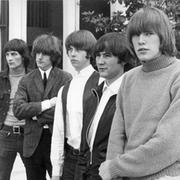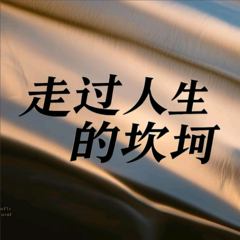The Byrds
Although they only attained the huge success of the Beatles, Rolling Stones, and the Beach Boys for a short time in the mid-'60s, time has judged the Byrds to be nearly as influential as those groups in the long run. They were not solely responsible for devising folk-rock, but they were certainly more responsible than any other single act (Dylan included) for melding the innovations and energy of the British Invasion with the best lyrical and musical elements of contemporary folk music. The jangling, 12-string guitar sound of leader Roger McGuinn's Rickenbacker was permanently absorbed into the vocabulary of rock. They also played a vital role in pioneering psychedelic rock and country-rock, the unifying element being their angelic harmonies and restless eclecticism. Often described in their early days as a hybrid of Dylan and the Beatles, the Byrds in turn influenced Dylan and the Beatles almost as much as Bob and the Fab Four had influenced the Byrds. The Byrds' innovations have echoed nearly as strongly through subsequent generations, in the work of Tom Petty, R.E.M., and innumerable alternative bands of the post-punk era that feature those jangling guitars and dense harmonies. Although the Byrds had perfected their blend of folk and rock when their debut single, "Mr. Tambourine Man," topped the charts in mid-1965, it was something of a miracle that the group had managed to coalesce in the first place. Not a single member of the original quintet had extensive experience on electric instruments. Jim McGuinn (he'd change his first name to Roger a few years later), David Crosby, and Gene Clark were all young veterans of both commercial folk-pop troupes and the acoustic coffeehouse scene. They were inspired by the success of the Beatles to mix folk and rock; McGuinn had already been playing Beatles songs acoustically in Los Angeles folk clubs when Clark approached him to form an act, according to subsequent recollections, in the Peter & Gordon style. David Crosby soon joined to make them a trio, and they made a primitive demo as the Jet Set that was nonetheless bursting with promise. With the help of session musicians, they released a single on Elektra as the Beefeaters that, while a flop, showed them getting quite close to the folk-rock sound that would electrify the pop scene in a few months.


 Born To Rock & Roll - The Byrds
Born To Rock & Roll - The Byrds



























![[STATION] aespa《Dreams Come True》MV Teaser - aespa (에스파)](https://img2.kuwo.cn/wmvpic/324/79/54/2120387380.jpg?imageView2/1/w/195/h/130/format/jpg/q/60)





